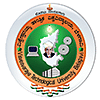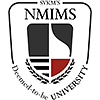M.Phil Syllabus and Subjects
The M.Phil subjects cover topics based on research and managerial approach to prepare the students for a lucrative career. The benefits of the M.Phil course is that it is a research-based program and provides individuals with key industrial skills that smoothen the transition to the work in an industry when they graduate. And since the M.Phil job scope is very high, employment opportunities are available in both public and private sectors.
Semester-Wise M.Phil Syllabus
M.Phil subjects focus on studying the theoretical and pragmatic concepts of the research domain. The M.Phil subjects list emphasizes the origin, development, and scope of the domain subject. The M.Phil subjects are divided into 4 semesters.
First-Year M.Phil Syllabus
Below is a table of the M.Phil Syllabus for the first year:
| Semester I | Semester II |
| Philosophical Foundations of the Subject | Advanced Research Methodology and Research in the Area of Study |
| Analysis and Domain Study | Elective Subject - I |
| Study of Origin and Development of the Subject | Study of Relative Discipline to the Subject of Study |
Second-Year M.Phil Syllabus
Below is the table for the second year M.Phil Syllabus:
| Semester III | Semester IV |
| Computer Applications in the Domain of the Subject | Dissertation |
| Viva- Voce Examination | Elective Subject II |
| Exercise/Practical Work | - |
M.Phil Subjects
The M.Phil subjects that come under each specialization focus to provide students with in-depth knowledge about the domain subject and its research scope. The M.Phil syllabus of each specialization may have different tenets of the course details but the overall layout of the M.Phil syllabus for any specialization remains the same. Students study the M.Phil subjects over 4 semesters to make the Master of Philosophy Syllabus more flexible. Listed below is the M.Phil subjects list for the 2-year duration course:
- Family Studies
- Human Development
- Early Childhood Care and Education
- Research Methods and Statistics
- Community Psychology
- Child and Family Welfare
- Management Principles
- Understanding of Managerial Roles
- Review of Literature
- Human Resource Management
Specialization-Wise M.Phil Syllabus
Many students often wonder what is the scope of doing an M.Phil? M.Phil subjects list is spread across a wide range of specializations that each offer students a definitive area of research according to their will and interest. The M.Phil subjects begin the focus on the research aspect of each specialization within the first year itself. Listed below are some of the M.Phil specializations available to students:
M.Phil Commerce
M.Phil Commerce is a 2-year duration master's program that deals with the subject of commerce such as Finance and Banking. The research program delves into the usage of the commerce domain in the human aspects of life.
Read More About M.Phil Commerce syllabus and subjects
M.Phil English
M.Phil English focuses on the concept, evolution, theories, and research implications of various literary theories and subject matter. Students study in detail the literature overview of their research domain and further extend that area of research.
Read More About M.Phil English syllabus and subjects
M.Phil Mathematics
Concepts such as matrix analysis, boundary layer theory, and hydromagnetic stability are some of the core subjects in M.Phil Mathematics. Numerical skills are a must to excel in this research domain.
Read More About M.Phil Mathematics syllabus and subjects
M.Phil Chemistry
The concepts of study areas that come under M.Phil Chemistry are Thermodynamics, Kinetics, Mechanism, Coordination Chemistry, Organic Synthesis etc. Research Methodology in these various areas of research forms the basis for my M.Phil in Chemistry.
Read More About M.Phil Chemistry syllabus and subjects
Other Important M.Phil specializations are listed below:
- M.Phil Computer Science syllabus and subjects
- M.Phil History syllabus and subjects
- M.Phil Sociology syllabus and subjects
- M.Phil Biotechnology syllabus and subjects
- M.Phil Zoology syllabus and subjects
- M.Phil Physics syllabus and subjects
- M.Phil Clinical Psychology syllabus and subjects
| M.Phil Specialization | Syllabus /Subjects |
| M.Phil in Psychology |
|
| M.Phil in English |
|
| M.Phil in Economics |
|
| M.Phil in Education |
|
| M.Phil in Management |
|
M.Phil Course Structure
The M.Phil course structure is divided into 4 semesters. During the 2-year duration, the M.Phil specializations have both core and elective subjects that offer students an all-round perspective of their area of study. The M.Phil subjects not only ensure the f,ocus on research skills of the students but that they also cater to the industry demands. The M.Phil syllabus, with its core and elective subjects along with practical submissions, make the course more flexible in approach. Listed below is the course structure for Master of Philosophy subjects:
- Core Subjects
- Elective Subjects
- Research Methodology
- Dissertation
- Practicals
- Exercises
- Viva-voce
- Computer Applications
M.Phil Teaching Methodology and Techniques
M.Phil teaching methodology and techniques require a lot of pragmatic approaches along with the theoretical approach that is present in all of the academic research. Practicals, viva, projects, and dissertations are some of the few M.Phil benefits that enhance the student’s skills and abilities not only for further research but also to cater to industry demands. Sometimes, the students are presented with problem situations and are expected to provide solutions to certain pain points. The various teaching methodology and techniques equipped in the M.Phil subjects are listed below:
- Practical Submissions
- Exercises
- Dissertation
- Viva-voce
- Computer Applications
- Discussions
- Inquiry Method
- Problem-solving
- Seminars
- Discovery Method
M.Phil Projects
The M.Phil syllabus is a purely research-based course structure. Therefore, the M.Phil subjects are concentrated on the areas of research that require the students to take up various project topics. These project topics work as the primary research domain of the individual whose performance is evaluated based on it. Some of the M.Phil benefits include a wide array of specializations that offer new perspectives and topics to almost all aspirants. Some of the popular M.Phil project topics are listed below:
- The effect of academic performance on the academic health
- The role of homework in the lives of immigrant adolescents
- Informal learning in rural areas through their social networks
- Does learning existentialism cause suicides?
- The influence of the internet on the emotional maturity of teens
M.Phil Reference Books
M.Phil reference books help students in attaining a deeper knowledge of their area of research. The M.Phil subjects list offers a lot of important reference books and students should purchase them following their needs and interests. Purchasing the most adequate books according to the M.Phil syllabus helps the students in saving up a lot of unnecessary expenditure. Some of the popular M.Phil reference books are listed below:
| Name of the Books | Authors |
| Mathematical analysis | T M Apostol |
| Introduction to graph theory | Douglas B West |
| Classical mechanics | Goldstein, Poole, and Safko |
| Essentials of abnormal psychology | V Mark |
| Test, measurements, and research methods in behavioural science | AK Singh |
| Language testing and evaluation | Desmond Allison |
| A history of English language teaching | Anthony Howard |
























